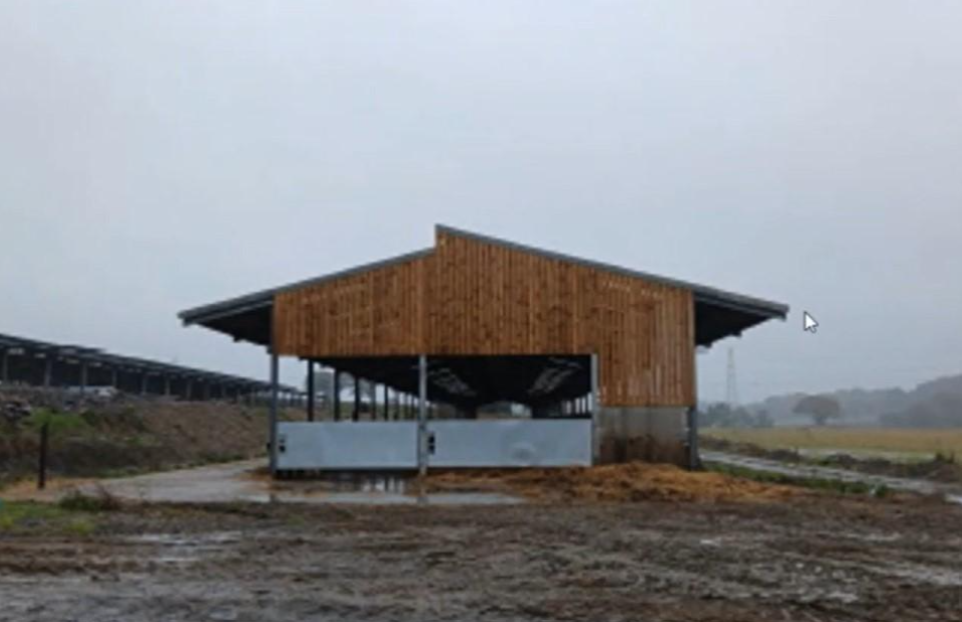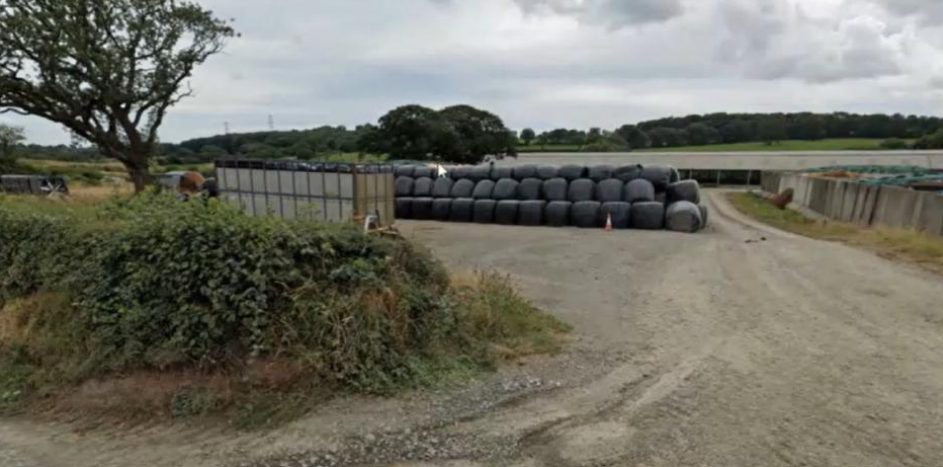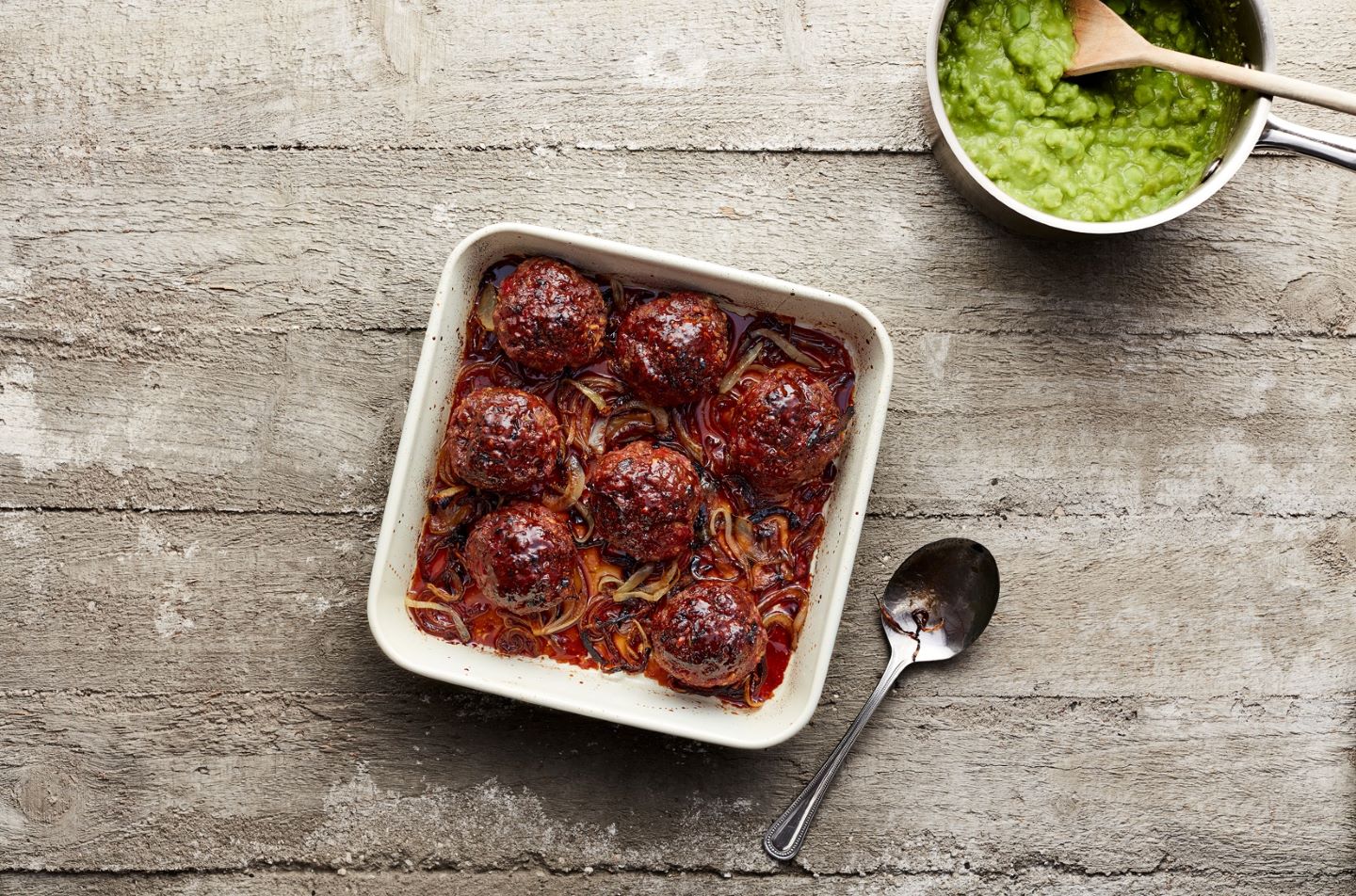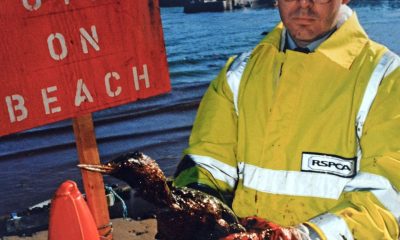Farming
Union Leader’s New Year message

Appointment welcomed:
Rebecca Evans’ approach
endorsed by both FUW & NFU
The year, 2014, ended as it started with uncertainty within the farming industry as to how the Basic Payment Scheme (BPS) will be distributed across Wales from 2015. Throughout the entire CAP reform process NFU Cymru has consistently argued for a policy solution that seeks to minimise disruption, as much as possible, in the move from historic to area based payments. NFU Cymru has stressed to Welsh Government the importance of reconsidering all the options available under the EU regulations to help inform its new consultation. As well as a differentiated payment rate system, consideration should also be given to the approach to CAP direct payments adopted in Ireland, the so called ‘tunnel approach’ which seeks to limit the losses for farmers in the transition towards an area based payment.
Once the Welsh Government comes forward with a new set of options NFU Cymru will consult widely with our membership to ensure that our response takes account of the views of members across all regions and all sectors of agriculture in Wales. Since the new Deputy Minister for Food and Agriculture took over the reins in July we have welcomed the constructive and positive dialogue that we have had with her and her team. Rebecca Evans has highlighted her intention to produce an Agriculture Strategy for Wales in 2015 and NFU Cymru looks forward to this being developed in a genuine partnership to help achieve our goal of a productive and profitable agriculture industry in Wales.
This strategy must come forward with some key actions and targets, tying in wherever possible with the ambitious targets set within the Food Strategy launched last summer. Once these actions and targets are identified then all policies, schemes and projects must work towards delivering against the strategy. The Wales Rural Development Programme (RDP) can play an integral role in delivering on the Agriculture Strategy. For this to happen we need to see schemes and projects developed that offer clear farmer benefit, ensure high levels of uptake and participation, are easily accessible and adequately resourced.
Price volatility has impacted upon all sectors of agriculture in Wales in 2014. Whilst the EU’s Common Agricultural Policy (CAP) does help farming businesses to manage volatility, this support is changing and levels of support are declining. We continue to meet with processors and retailers to stress the importance of working with farmers on long term supply chain relationships that seek, wherever possible, to reduce exposure to the ups and downs of global commodity markets. 2015 will see a Westminster general election and I see this as an opportunity for all our political parties to reaffirm their commitment to the work of the Grocery Code Adjudicator (GCA). I will be looking to see the powers and resource given to the GCA increased so that the GCA can investigate all links in the supply chain.
This will help drive out unfair trading practices between the farm gate right through to retailers and food service companies. Public Food Procurement is an area where I see room for improvement at both a Welsh and Westminster Government level, with our Governments ensuring that public food procurers place far greater emphasis on quality marks like PGI and assurance standards like the Red Tractor. Whilst I welcome the current downward trend in the number of new bovine TB incidents, and cattle slaughtered as a result of TB, we must not forget that this disease continues to cause untold misery to farmers and their families.
Dairy farmers responding to the Welsh Dairy Farmer survey published in 2014 highlighted bovine TB as ‘the greatest issue affecting their business’ and the HCC commissioned Beef Review came to the conclusion that the Welsh beef industry is ‘no doubt badly handicapped by endemic bovine TB’. Farmers are doing their utmost to get on top of this disease through complying with the stringent cattle control measures, but I continue to maintain that eradication of bovine TB from the Welsh countryside can only be achieved through the removal of diseased wildlife alongside the cattle measures we already have in place.
Despite the challenges posed by CAP, global markets and bovine TB, I remain optimistic for our future. The key fundamentals in terms of a growing domestic and world population evermore seeking assurance over the quality and provenance of their food remains in place and Welsh farmers are well placed to capitalise. What makes me most confident about our future is the professionalism, commitment and dedication that I have seen from our younger and next generation of farmers. As NFU Cymru President I am committed to doing my utmost to ensure that we create the conditions that, through Government policy and in the marketplace, gives them the best possible chance for a long and prosperous future farming the land.
Farming
Performance recording transforms hill flock at Llysfasi college farm

A WELSH college farm is successfully lambing triplet-bearing ewes outdoors on exposed hill ground after introducing genetic performance recording to strengthen maternal traits and flock resilience.
At Coleg Cambria Llysfasi, near Ruthin, a flock of 120 pure Welsh Mountain ewes grazes land rising between 1,000 and 1,300 feet above sea level, where winter conditions can be harsh and only the hardiest sheep thrive.
Since joining the Farming Connect Welsh Sheep Genetics Programme in 2023, the farm has used Estimated Breeding Values (EBVs) to target improvements in maternal ability, growth rates and overall performance. Although genetic gains are often gradual, staff say results are already clear just three years into the scheme.
Historically, ewes carrying triplets were lambed indoors, adding labour and cost. Now, improved maternal strength means they can lamb outside with minimal intervention.

“The ewes are holding their body condition better, we haven’t had any problems lambing them outdoors and they keep their lambs very well,” said shepherd Alun Jones. “We’re seeing fewer losses and far less hands-on work. In the 2025 season we only assisted two ewes out of 120.”
The wider system runs 600 ewes, including Welsh Mountains crossed with Abertex to produce mule ewe lambs, and mules crossed with Beltex or Texel rams for finishing lamb production. Plans to phase out the Welsh Mountain breed were reversed after recognising its value for hardiness and mothering ability in upland conditions.
Performance recording began in autumn 2023 with tissue samples, body condition scoring and regular weighing to create a reliable data baseline.
“Before, we were judging by eye,” said Mr Jones. “Now we’ve got hard evidence to guide decisions.”
By identifying and removing the bottom 20 per cent of performers, the flock’s overall index has risen from £13 to £16.24 — a significant lift in commercial potential.
Lambs are currently creep-fed and sold from November to January at 38–42kg liveweight, with a longer-term aim to finish earlier and reduce concentrate use.
Farm manager Dewi Jones said the data has also changed how they buy rams.
“When you’re at a sale and you’ve got the indexes in front of you, you can draw a red line through the animals that don’t stack up. Type still matters, but figures matter just as much. Data gives you confidence in your choices.”
Some home-bred ram lambs are now matching the performance of sale-topping sires, creating opportunities to retain or market their own breeding stock.
Mr Jones believes the sheep sector could benefit from taking a more data-driven approach, similar to dairying.
“If we don’t measure, we can’t improve. Recording takes time, but the rewards are there. It’s about working smarter and building a more resilient flock for the future.”
Shepherd Alun Jones with Welsh Mountain ewes at Llysfasi.
Performance recording and weighing form a key part of the improvement programme.
Business
Langdon Mill Farm Pembrokeshire expansion signed off

THE FINAL sign-off for plans for a heifer accommodation building and associated works at one of Pembrokeshire’s largest dairy farms, with a milking herd of 2,000 cows, have been given the go-ahead.
In an application backed by councillors at the December meeting of Pembrokeshire County Council’s planning committee, Hugh James of Langdon Mill Farms Ltd sought permission for a 160-metre-long heifer accommodation building, a slurry separation/dewatering building and associated yard areas at 1,215-hectare Langdon Mill Farm, near Jeffreyston, Kilgetty.
A supporting statement through agent Reading Agricultural Consultants said: “The holding currently has a milking herd of approximately 2,000 cows, which are housed indoors for the majority of the year, with dry cows and heifers grazed outdoors when weather and soil conditions permit.

“There has been significant investment in buildings and infrastructure at the farm over the last decade in respect of cattle accommodation, slurry storage, milking facilities, Anaerobic Digestion (AD) plant, feed storage. Recently a calf and weaned calf accommodation buildings were approved by Pembrokeshire County Council with construction almost complete.
“The unit is efficient, achieving yields of more than 10,000 litres/cow/year, with cows being milked three times/day in the 60-point rotary parlour. Langdon Mill Farm currently directly employs 21 full-time, and three part-time staff. Of these, four live on site in the two dwellings opposite the farm, with the remaining staff living in the locality.”
It added: “Although the unit has previously purchased heifers to aid expansion, the farm now breeds most of its own replacements to improve genetics and to minimise the ongoing threat of bovine tuberculosis (bTB).”
It said the proposed building would be used by heifers between the ages of 7-22 months, the siting “directly influenced by the adjacent calf and weaned calf buildings, with livestock being moved from one building to the next as they get older”.
Members unanimously supported the recommendation of approval, giving delegated powers to the interim head of planning to approve the application following the final approval of a habitats regulations assessment.
An officer report published yesterday, February 5, said Natural Resources Wales confirmed it had received the assessment, and, “in consideration of the mitigation measures detailed and on the understanding there is no increase in stock, they agree with the LPA’s conclusion that an adverse effect upon the integrity of the SAC [Special Areas of Conservation] sites can be ruled out”.
Formal delegated approval has now been granted by officers.
Farming
Forgotten meats tipped as future ‘superfood’ comeback

SO-CALLED “forgotten meats” such as liver, heart and kidneys could soon find their way back onto dinner plates, with scientists suggesting they may offer a cheap, sustainable and highly nutritious alternative to modern ultra-processed foods.
Offal was once a staple of everyday diets across the UK, particularly in working-class households, but has steadily fallen out of favour in recent decades despite being rich in iron, protein and essential vitamins.
Now researchers at Aberystwyth University are working with Hybu Cig Cymru (HCC) to understand why demand has dropped and whether these cuts could be repositioned as affordable “superfoods”.
Scientists say that when nutrient-dense parts of the animal go uneaten, valuable food is effectively wasted.
Dr Siân Mackintosh, from the university’s Institute of Biological, Environmental and Rural Sciences (IBERS), said these meats could play an important role in healthier and more sustainable diets.
“Where they are not being used, these nutrient-dense ‘forgotten meats’ represent a significant loss of nutrients from our food chain,” she said. “Incorporating them as part of a balanced diet could support human health while also reducing food waste and improving environmental outcomes.”
Taste tests win over public
To test public attitudes, HCC staff have been running tasting sessions at major agricultural events including the Royal Welsh Show and the Winter Fair in Llanelwedd.
Visitors sampled dishes made with Welsh lamb’s liver, including stroganoff, traditional faggots and pâté. Organisers say many people were surprised by the flavour and keen to learn how to cook them at home.
Dr Eleri Thomas, Future Policy and Project Development Executive at HCC, said interest was stronger than expected.
“We believe there is significant potential for these forgotten meats to be incorporated back into our diets,” she said. “Consumers liked the flavour and wanted recipes and cooking tips, as well as understanding the nutritional value.”
She added that making better use of undervalued cuts could improve sustainability across the meat supply chain while creating new marketing opportunities for Welsh producers.
Part of wider sustainability project
The work forms part of the SMART Nutrient Cymru project, funded through the Welsh Government’s innovation support scheme.
Project lead Dr Christina Marley said the aim is to capture nutrients currently being lost across the agri-food system.
Alongside the collaboration with HCC, the team has also partnered with Dŵr Cymru Welsh Water on land management to protect rivers, and with British Wool to explore new uses for fleece by-products.
IBERS itself is one of eight UK research institutes strategically supported by Biotechnology and Biological Sciences Research Council, providing national expertise in grassland and plant breeding science.
Researchers say that with food prices rising and pressure growing to reduce waste, traditional nose-to-tail eating could offer both economic and environmental benefits.
Image: Welsh lamb faggots (Pic: HCC)
-

 Health7 days ago
Health7 days agoHealth board targets rise in steroid and gym drug use across west Wales
-

 Health20 hours ago
Health20 hours agoHealth Board to decide future of nine key services at two-day meeting
-

 Crime7 days ago
Crime7 days agoTeacher injured and teenager arrested for attempted murder at Milford Haven School
-

 Business3 days ago
Business3 days agoComputer Solutions Wales under fire from customers
-

 Business6 days ago
Business6 days agoSix-figure negligence victory leaves retired builder trapped in divorce limbo
-

 News7 days ago
News7 days agoReform appoints Dan Thomas to lead party in Wales
-

 Sport7 days ago
Sport7 days agoWales name squad for Six Nations opener against England
-

 Business4 days ago
Business4 days agoMinimum alcohol price to rise by 30 per cent as retailers warn of border impact




























